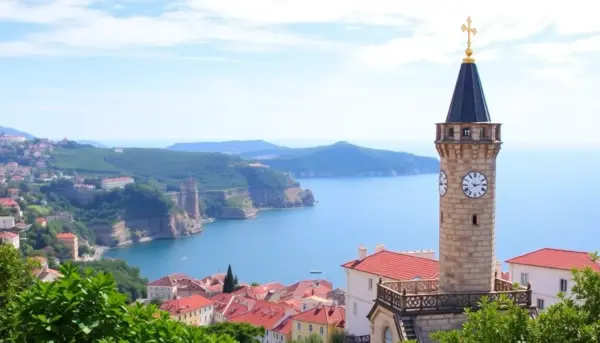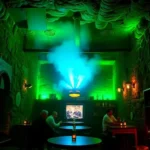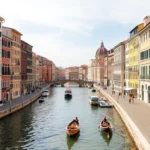Portugal is not just known for its stunning landscapes and rich history; it harbors a treasure trove of secrets that many may not be aware of. Whether you've visited this beautiful country multiple times or are just beginning to explore its charms, there are countless intriguing facts waiting to be discovered. Here, we delve into 20 fascinating curiosities about Portugal and its people that will deepen your appreciation for this remarkable nation.
20 interesting facts about Portugal
1. The Portuguese flag was established after the October 5th Revolution. It features a shield at its center, set against a background of green and red. The green symbolizes the nation's hope, while the red honors the blood shed by those who fought for Portugal's freedom.
2. One of the most iconic symbols of Portuguese culture is fado, a traditional music genre characterized by its melancholic and soulful melodies. Emerging from the streets around the port of Lisbon in the early 19th century, fado concerts are a popular cultural experience in the capital, offering a unique and unforgettable evening.
“Love, jealousy, ash and fire, pain and sin.
All this exists; all this is sad; all this is fado.”
3. Among the more somber curiosities, Portugal endured one of the longest dictatorships in history. Antonio de Oliveira Salazar ruled from 1926 until 1968, when he was succeeded by Marcelo Caetano due to health issues. This regime lasted until 1974, when the Carnation Revolution led by the people brought an end to Salazar's oppressive rule. This day, April 25th, is now celebrated as the Day of Freedom.
4. While the official language is Portuguese, it is spoken far beyond Portugal's borders. In addition to Brazil, Portuguese is the official language of several countries including Angola, São Tomé and Príncipe, Guinea-Bissau, Mozambique, Cape Verde, and Timor-Leste. The influence of Portuguese can even be traced in places like Goa (India) and Macau.
5. Portugal is celebrated as the homeland of many renowned navigators and explorers, especially during the golden centuries of the 15th and 16th. Figures such as Ferdinand Magellan, who was the first to circumnavigate the globe, and Vasco da Gama, who discovered the sea route to India (without getting lost like Columbus), made significant contributions to world exploration.
6. Portuguese ships also made their way to Japan, establishing trade that led to a culinary legacy still savored today: tempura. This dish originated when Portuguese cooks introduced the concept of batter-frying fish, paving the way for one of Japan's most beloved culinary traditions.
7. The alliance between Portugal and England is one of the oldest in history, dating back to the 14th century. This enduring relationship led to the British passion for tea, a custom introduced to the British court by Catarina de Bragança when she married Charles II. Thus, the afternoon tea we know today has Portuguese roots.
8. The stunning Portuguese tiles known as azulejos are famous worldwide. These decorative tiles were introduced to Portugal by the Moors, who had mastered this art long before. Interestingly, the term “azulejo” comes from the Arabic “azzelij,” meaning “polished stone,” reflecting its origins.
9. The country's name itself derives from a city: Oporto. The Romans referred to it as Portus Cale, a name that evolved into the modern-day “Portugal.” This historical connection underlines the deep roots of the nation's identity.
10. The small coastal town of Nazaré holds a world record for surfing the highest waves, which can exceed 20 meters. This extreme location has become a hotspot for professional surfers seeking the thrill of these colossal waves.
11. The Vasco da Gama Bridge that spans the Tagus River in Lisbon is the longest bridge in Europe, measuring a staggering 12,345 meters. Its impressive structure is a symbol of modern engineering and a testament to Portugal's evolution over the years.
12. In a surprising turn of events, Luis Filipe de Bragança was monarch for a mere 20 minutes. This brief reign occurred after two republican activists attacked him and his father, Carlos I, resulting in his untimely demise before any official proclamation could be made.
13. Lisbon was the site of one of the most devastating earthquakes in history on November 1, 1755. With a magnitude of 9, the quake and subsequent tsunami claimed around 300,000 lives and destroyed nearly 90% of the city. This catastrophe had far-reaching effects on European philosophy and urban design.
14. The city of Lagos in the Algarve has a dark chapter in its history as the first European port to receive enslaved people. However, it is important to note that Portugal was also the first colonial power to abolish slavery in 1761, marking a significant shift in humanitarian practices.
15. Another intriguing curiosity involves the Gallo de Barcelos, a rooster that symbolizes good luck and is a popular souvenir. According to legend, a pilgrim wrongfully accused of theft was saved from execution when a cooked rooster miraculously crowed in his defense, proving his innocence.
16. In Portuguese cuisine, bacalhau (cod) is a staple ingredient, with over 100 different recipes to prepare it. Among these, the beloved bacalhau com nata has earned a special place in the hearts of locals and visitors alike.
17. Another delectable treat is the pastéis de Belém, often confused with the pastéis de nata. The pastéis de Belém were the original custard tarts established in the region, and their recipe remains a closely guarded secret. However, pastéis de nata, which follow a similar recipe, cannot bear the same name.
18. The smallest bookstore in the world is located in Portugal, specifically in the Baixa district of Lisbon. Named Livraria Simão, this tiny shop spans just over 3 square meters and boasts an impressive collection of more than 2,000 books. A visit here, paired with a coffee at Café A Brasileira, is a must.
19. The iconic Port wine, known for its sweetness and rich flavor, is a source of pride for the Portuguese. Interestingly, around 86% of Port wine production is exported, showcasing its global appeal. If you find yourself in Porto, be sure to visit a local winery for an authentic tasting experience.
20. If flying is not your forte, you might want to think twice before landing at the Madeira Island airport, whimsically named Cristiano Ronaldo. The airport is notorious for its challenging landing conditions due to strong winds, often leaving pilots with an adrenaline-inducing experience as they navigate the runway, which seems to float above the ocean.
There are undoubtedly countless more curiosities about Portugal waiting to be uncovered. Hopefully, these 20 fascinating facts will allow you to gain a deeper understanding and appreciation of this enchanting neighbor.
| Save on your trip |
| Compare and find cheap flights here |
| Find accommodation at the best prices here |
| Book activities and excursions in Spanish here |
| Get a 5% discount on your travel insurance with IATI here |
| Book airport transfers here |
| Receive a €10 gift when booking transportation in Europe here |
| Learn how to withdraw money without commissions here |
| Get a 5% discount on your eSIM from Holafly here |
| Rent a car with the best offers here |
| Compare prices for van rentals here |
| The best books and travel guides here |
| All our articles about Portugal |
* Photocredit: Shutterstock




